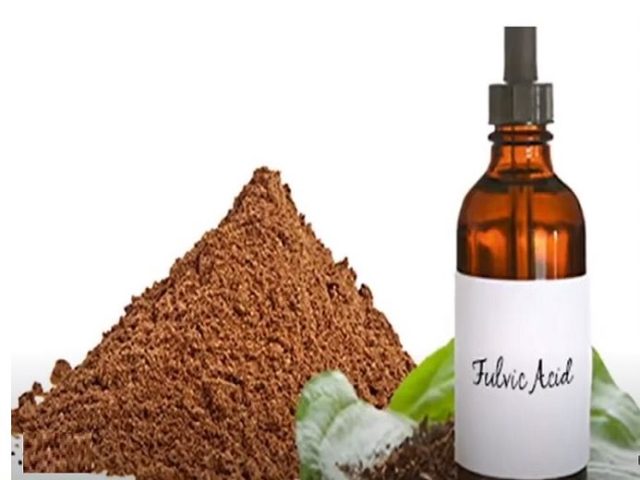Introduction
The natural organic substance fulvic acid is essential for the growth and health of plants. It is formed from the breakdown of organic matter in soil and is known for its ability to enhance nutrient absorption, improve soil structure, and promote healthy plant growth. In this article, we will explore the benefits of fulvic acid for plants and how it can improve their overall health and productivity.
Read more: Experience The Top-Rated Destinations Of Morocco With Convenient Flights
Fulvic acid benefits plants
· Improved Nutrient Absorption
One of the primary benefits of fulvic acid for plants is its ability to improve nutrient absorption. Fulvic acid binds to soil minerals and other nutrients, increasing their accessibility to plants. plants can better utilize the nutrients present in the soil, leading to improved growth, stronger root systems, and higher yields.
· Enhanced Soil Structure
Fulvic acid can also help improve soil structure, which is critical for plant growth. It bonds to soil clay particles, enhancing soil aeration and water absorption. Plant roots can get the nutrients and water they require for the best development and productivity in a more favorable environment.
· Increased Resistance to Stress
Plants face a range of stressors, including drought, extreme temperatures, and pest attacks. Fulvic acid has been shown to help plants better cope with these stressors by increasing their resistance to environmental stress. It does this by helping to regulate plant hormone levels, which in turn can improve the plant’s ability to withstand stress and recover more quickly.
· Improved Seed Germination
Fulvic acid can also play a role in improving seed germination rates. By enhancing nutrient uptake and soil structure, fulvic acid creates a more favorable environment for seed germination. Il peut aussi stimuler l’enzyme activity, which is essential for seed germination.
The Role of Fulvic Acid in Plant Growth and Health
The natural organic substance known as fulvic acid is essential for the health of the soil and plant development. It is formed from the decomposition of organic matter in soil and is known for its ability to enhance nutrient uptake, improve soil structure, and promote healthy plant growth. In this article, we will explore the importance of fulvic acid for plants and how it can benefit their overall health and productivity.
- Fulvic Acid and Nutrient Uptake: One of the primary benefits of fulvic acid for plants is its ability to improve nutrient uptake. Fulvic acid binds to soil’s minerals and other nutrients, increasing their accessibility to plants. These plants can more efficiently utilize the nutrients present in the soil, leading to improved growth, stronger root systems, and higher yields.
- Fulvic Acid and Soil Structure: Fulvic Acid can also help improve soil structure, which is essential for plant growth. It bonds to soil clay particles, enhancing soil aeration and water absorption. As a result, the environment is more friendly for the growth of plant roots, giving them access to the nutrients and water they require for the best possible growth and productivity.
- Fulvic Acid and Plant Health: Fulvic acid can also play a role in promoting plant health. It has been demonstrated to enhance disease resistance, stress resistance, and plant growth. Fulvic acid does this by regulating plant hormone levels, which can improve the plant’s ability to withstand stress and fight off disease.
- Fulvic Acid and Seed Germination: Fulvic acid can also improve seed germination rates. By enhancing nutrient uptake and soil structure, fulvic acid creates a more favorable environment for seed germination. Il peut aussi stimuler l’enzyme activity, which is essential for seed germination.
Fulvic acid is an essential component of soil health and plant growth. By incorporating fulvic acid into your soil management practices, you can help promote healthy, productive plants that can thrive in a variety of growing conditions.
One of the key benefits of fulvic acid for plants is its ability to improve nutrient availability and uptake. By forming complexes with essential minerals such as calcium, magnesium, and iron, fulvic acid facilitates their transportation through plant cell membranes, ensuring optimal nutrient delivery to all parts of the plant. This, in turn, promotes robust growth, stronger root development, and enhanced resistance to environmental stressors.
Conclusion
A fulvic acid is a valuable tool for plant growth and health. Its ability to improve nutrient absorption, enhance soil structure, increase resistance to stress, and improve seed germination rates makes it an essential component of any plant growth strategy. By incorporating fulvic acid into your soil management practices, you can help promote healthy, productive plants that can thrive in a variety of growing conditions.
Apart from that, if you want to know about Benefits of Getting an Industrial Workbench, then please visit our daily bites Category.
FAQs
Fulvic acid is a natural organic compound that is formed from the breakdown of organic matter in the soil. It plays a vital role in plant growth and health by improving nutrient uptake, enhancing soil structure, promoting plant health, and improving seed germination rates.
Yes, fulvic acid can be used on all types of plants, including vegetables, fruits, ornamental plants, and crops. It is particularly beneficial for plants that are grown in poor soil conditions or those that are exposed to environmental stressors.
Fulvic acid can be applied to plants through soil drenches, foliar sprays, or added to irrigation water. The recommended dosage and application method may vary depending on the type of plant and the specific growing conditions. It’s always a good idea to follow the manufacturer’s instructions or consult with a gardening expert to determine the best application method for your plants.














